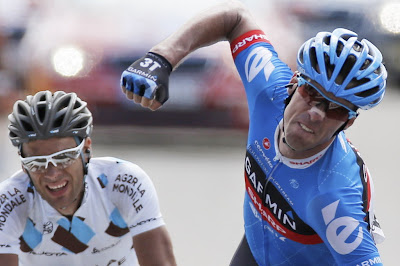The leaves are gone, it is dark early in the evening, and cold has now given way to rain, and in other parts of the country, flooding. It is winter and the glory of the summer Olympics already seems an age ago. When you are hunkering down against the weather it is hard to remember the feelings of warmth an openness which characterised that time. The reviews of the year remind us what happened and show many glorious moments but the hoopla has now over and it is time to look what at what was promised as a legacy. No not whether West Ham take over the Olympic Stadium (an issue on which I have vanishingly small interest and absolutely no opinion) but whether the population will become more active and participate more in sports. The slogan was: "inspire a generation" and the hope was that a festival showing the limits of human physical performance would seize our imaginations and encourage us to do more ourselves.
I have always been sceptical as to whether watching elite sport spurs many people on. Supporting a team is as much about identity as anything else and ou only have to see the number of beer bellies wearing team shirts to know that not all spectators are as active as they might be. A problems is that top sportsmen are so much more capable than the average person they might be a different, but closely related, species (how can someone sustain 5min miles for 26 miles?). What they do is outside normal in all honesty we cannot say to ourselves “I can do that”, instead our response is “Wow!”. It is possible that instead of inspiring imitation all the exceptional performances reinforce the idea that sport is for other people.
Running is the sport with the lowest barrier to entry: anybody can buy a pair of trainers and get going but I would guess the London Marathon is a far bigger inspiration for participation than Usain Bolt. Seeing people of all shapes, sizes, ages and abilities, who each in their own way achieve something personally significant does make you think: ”I could do that!” We are all more likely to accept a challenge if we think it is achievable and when there are people we can realistically measure ourselves against. After that it is a ladder: if we find we have some talent then we compete against better people, and so on, and so on. What this requires is an infrastructure of grassroot clubs with the coaching to encourage us all to give of our best. This infrastructure is ultimately far more important than a huge festival (no matter how great it might be)
Don’t get me wrong I thought the Olympics were brilliant and also important in an unexpected way: like nothing else in my lifetime it showed us we were a cosmopolitan nation with a sense of identity more vibrant than is usually allowed. The efficiency of the building, planning, and running of the games combined with the high spirits of the helpers and good nature of spectators showed we are not a broken society. After so many generations of politicians and news commentators telling us that we are failing in every conceivable way and all is rubbish, it gave everyone heart to see this big thing being done well. Self esteem is not only important for individuals it is also important for nations and for this reason the Olympics were a wonderful thing but that was not their intended legacy. There is a big difference between the short term emotional release and the day-to-day work of getting more people permanently active.
Evidence from previous Olympics is not encouraging. Perhaps this time will be different but as I have already said mass participation in sport requires infrastructure: playing fields with changing facilities, running tracks, cycleways, all-weather tennis courts, outdoor gyms, gyms, parks, all of which have to be maintained as well as built. Clubs and leagues have to be staffed, volunteers have to give of their time, knowledge and enthusiasm and dreams have to be kept alive. In the summer, in a beautiful Olympic Park, surrounded by happy people, dreams are easy. In winter on a badly drained, muddy field with no working showers in the changing rooms it is more difficult.
Perhaps it is now time to put aside 2012 as a marvellous year of elite sport and look at how well the rest of us, the sub-prime physical specimens, are doing at keeping active.







